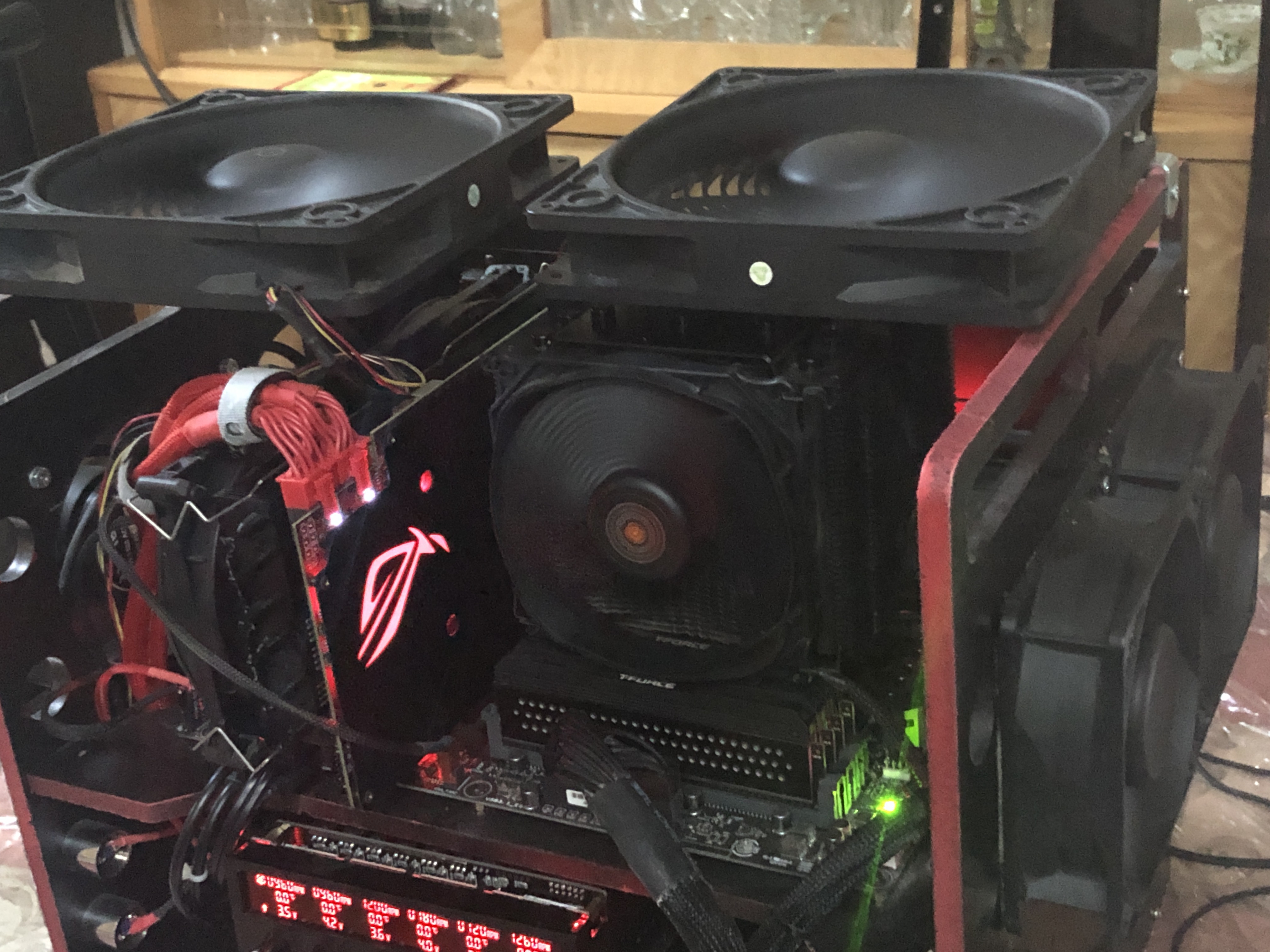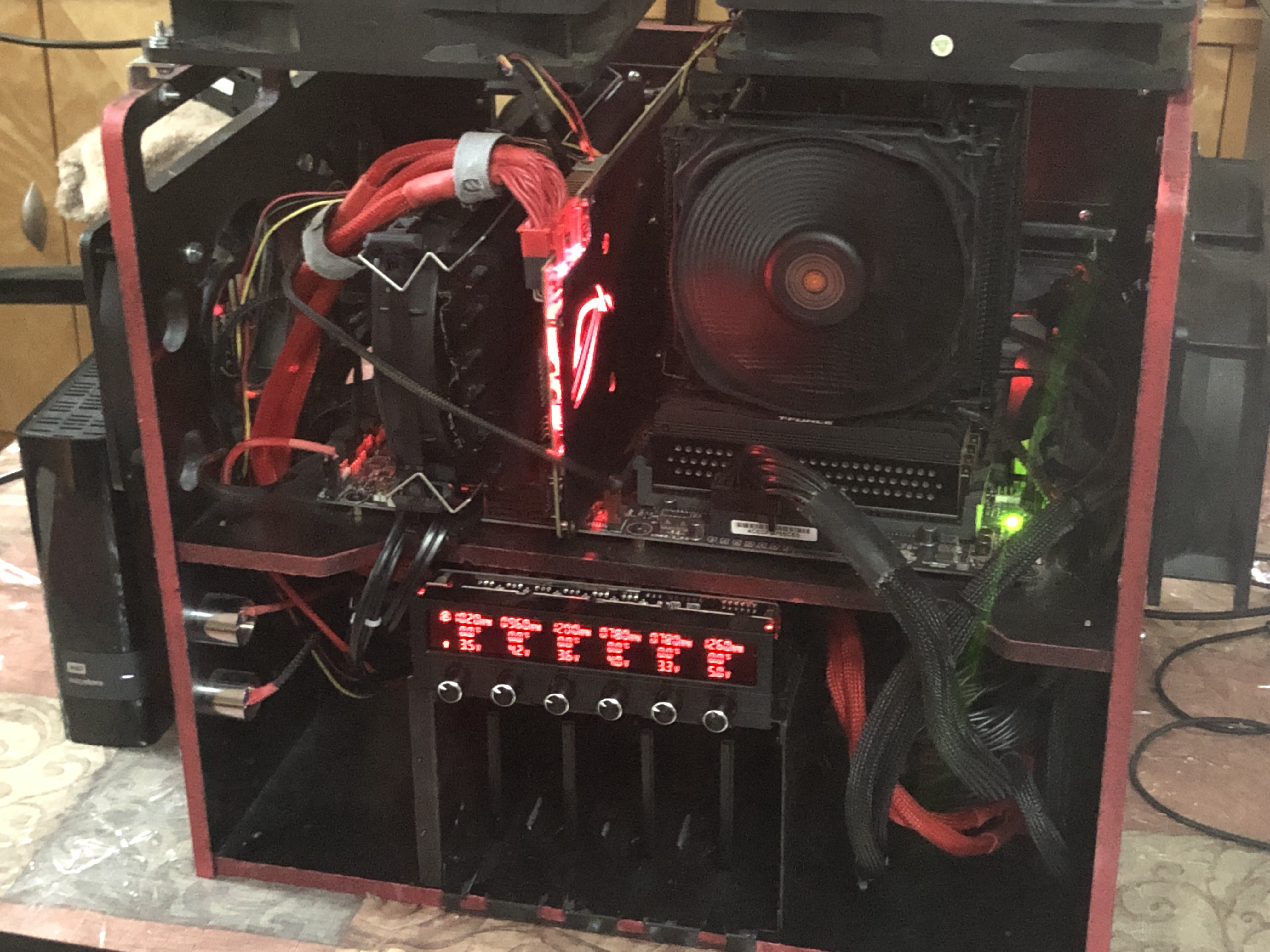Just curious about whats running your Endeavor OS.
CPU:
CPU Cooler:
Motherboard
Memory:
Storage:
Video Card:
Case:
Power Supply:
5 Likes
I’d like a new Ryzen-based build, but my current (part community-funded) GL702ZC is still running fine…
Specs
System: Kernel: 5.8.4-zen1-0-zen x86_64 bits: 64 compiler: N/A Desktop: MATE 1.24.1 info: mate-panel wm: marco 1.24.1
dm: LightDM 1.30.0 Distro: Arch Linux
Machine: Type: Laptop System: ASUSTeK product: GL702ZC v: 1.0 serial: <filter>
Mobo: ASUSTeK model: GL702ZC v: 1.0 serial: <filter> UEFI: American Megatrends v: GL702ZC.306 date: 07/05/2019
Battery: ID-1: BAT0 charge: 47.5 Wh condition: 47.5/74.2 Wh (64%) volts: 15.4/15.4 model: ASUSTeK ASUS Battery type: Li-ion
serial: N/A status: Not charging cycles: 8
CPU: Info: 8-Core model: AMD Ryzen 7 1700 bits: 64 type: MT MCP arch: Zen rev: 1 L2 cache: 4096 KiB
flags: avx avx2 lm nx pae sse sse2 sse3 sse4_1 sse4_2 sse4a ssse3 svm bogomips: 95809
Speed: 1771 MHz min/max: 1550/3000 MHz boost: enabled Core speeds (MHz): 1: 1943 2: 1750 3: 1373 4: 1375 5: 1375
6: 1371 7: 1375 8: 1497 9: 1798 10: 1587 11: 1356 12: 1342 13: 1337 14: 1371 15: 1375 16: 1372
Graphics: Device-1: Advanced Micro Devices [AMD/ATI] Ellesmere [Radeon RX 470/480/570/570X/580/580X/590] vendor: ASUSTeK
driver: amdgpu v: kernel bus ID: 0c:00.0 chip ID: 1002:67df
Device-2: Realtek USB2.0 HD UVC WebCam type: USB driver: uvcvideo bus ID: 1-8:3 chip ID: 0bda:57fa serial: <filter>
Display: x11 server: X.org 1.20.9 compositor: marco v: 1.24.1 driver: amdgpu resolution: <xdpyinfo missing>
Message: Unable to show advanced data. Required tool glxinfo missing.
Audio: Device-1: AMD Ellesmere HDMI Audio [Radeon RX 470/480 / 570/580/590] vendor: ASUSTeK driver: snd_hda_intel
v: kernel bus ID: 0c:00.1 chip ID: 1002:aaf0
Device-2: Advanced Micro Devices [AMD] Family 17h HD Audio vendor: ASUSTeK driver: snd_hda_intel v: kernel
bus ID: 12:00.3 chip ID: 1022:1457
Device-3: GYROCOM C&C Fiio E10 type: USB driver: hid-generic,snd-usb-audio,usbhid bus ID: 3-1.4:6
chip ID: 1852:7022
Sound Server: ALSA v: k5.8.4-zen1-0-zen
Network: Device-1: Realtek RTL8111/8168/8411 PCI Express Gigabit Ethernet vendor: ASUSTeK driver: r8169 v: kernel port: e000
bus ID: 06:00.0 chip ID: 10ec:8168
IF: enp6s0 state: up speed: 1000 Mbps duplex: full mac: <filter>
Device-2: Realtek RTL8822BE 802.11a/b/g/n/ac WiFi adapter vendor: AzureWave driver: rtw_8822be v: N/A port: d000
bus ID: 07:00.0 chip ID: 10ec:b822
IF: wlp7s0 state: down mac: <filter>
Drives: Local Storage: total: 1.14 TiB used: 441.88 GiB (37.8%)
ID-1: /dev/sda vendor: Samsung model: ST1000LM049-2GH172 size: 931.51 GiB speed: 6.0 Gb/s rotation: 7200 rpm
serial: <filter> rev: SDM1 scheme: GPT
ID-2: /dev/sdb vendor: Samsung model: SanDisk SD8SN8U256G1002 size: 238.47 GiB speed: 6.0 Gb/s serial: <filter>
rev: 1002 scheme: GPT
RAID: Device-1: tank type: zfs status: ONLINE raid: no-raid size: 888.00 GiB free: 479.00 GiB allocated: 409.00 GiB
Components: online: N/A
Partition: ID-1: / size: 40.00 GiB used: 15.31 GiB (38.3%) fs: btrfs dev: /dev/sdb4
ID-2: /boot size: 975.9 MiB used: 335.4 MiB (34.4%) fs: ext4 dev: /dev/sdb2
ID-3: /home size: 451.99 GiB used: 1.04 GiB (0.2%) fs: zfs raid: tank/home
Swap: ID-1: swap-1 type: partition size: 40.00 GiB used: 0 KiB (0.0%) priority: -2 dev: /dev/sda1
Sensors: System Temperatures: cpu: 67.0 C mobo: N/A gpu: amdgpu temp: 65.0 C
Fan Speeds (RPM): N/A
Info: Processes: 507 Uptime: 5h 30m Memory: 31.30 GiB used: 9.79 GiB (31.3%) Init: systemd v: 246 Compilers: gcc: 10.2.0
clang: 10.0.1 Packages: pacman: 1843 Shell: Zsh v: 5.8 running in: terminator inxi: 3.1.06
Links
5 Likes
I have a couple of PCs
My laptop is a Dell XPS 15 2019 model with a 4K OLED panel.
My desktop PC is a 3900x with a 2080S, 16GB of DDR4 RAM @ 3200MHz. It’s in an NCASE M1 with a 240mm AIO.
My couch PC is a 9900K with a GTX 1080 and a 360MM AIO in a Phantek Enthoo Evolv ITX. I also have a media centre PC and a “I’ll figure out what you’re for later PC” too
4 Likes
This is my current main system.
Ryzen 9 3900X
4 Likes
Here’s my setup.
CPU:
CPU Cooler:
Motherboard
Memory:
Storage:
Video Card:
Case:
Power Supply:
(picture is generic - no AIO cooler in mine!)
Secondary system:
Also a couple of other builds, reaching into the past
2 Likes
Root
August 27, 2020, 5:57am
6
My primary system is a rather modest looking Lenovo ThinkStation P330 2nd Gen. (Currently running Manjaro - Nvidia issue I didn’t have the time to troubleshoot - I took the fast lane and reinstalled the system)
Image
Specs
➜ ~ inxi -FxxxzX.Org 1.20.9 compositor: picom v: git-e553e
Lemon
August 27, 2020, 8:21am
7
Looks like an extravagant cd player.
1 Like
It would be, if it ever saw any
…If I had money…
Also, remind me quite a bit of a Cyberpunk street scene
1 Like
What - no threadripper? We could all use 64 cores…
1 Like
I was very tempted to get myself a 3950x which is about as close to a threadripper I’ll get
Even if I had money for either, I could never convince myself of a use case for it! There’s a limit to how far I can go to fool myself - and the Ryzen 7 3700x was that limit! Even then, I had to lean on the ‘future-proofing’ excuse pretty heavily
3 Likes
Holy Moly, does it sound like an airplane or a rocket?
1 Like
Airflow looks a bit restricted, mate
3 Likes
Nah everything is on a controller and under volted fan wise. It’s actually very quiet.
3 Likes
That’s about 650Hp, supercharged right?
3 Likes
Sidenote: If i built / got a high-spec tower I’d definitely want one / going to modify one to take in air from the top and blow it out in the back or thru the bottom. Pet hairs is Death to towers standing too close to the ground having air intakes 0-5 inches from the floor.
Better front → back then, since physically hot air always go from bottom to top…
In terms of airflow and physics best is bottom → top
Also try those anti-dust covers
1 Like
![]() Here’s my setup.
Here’s my setup.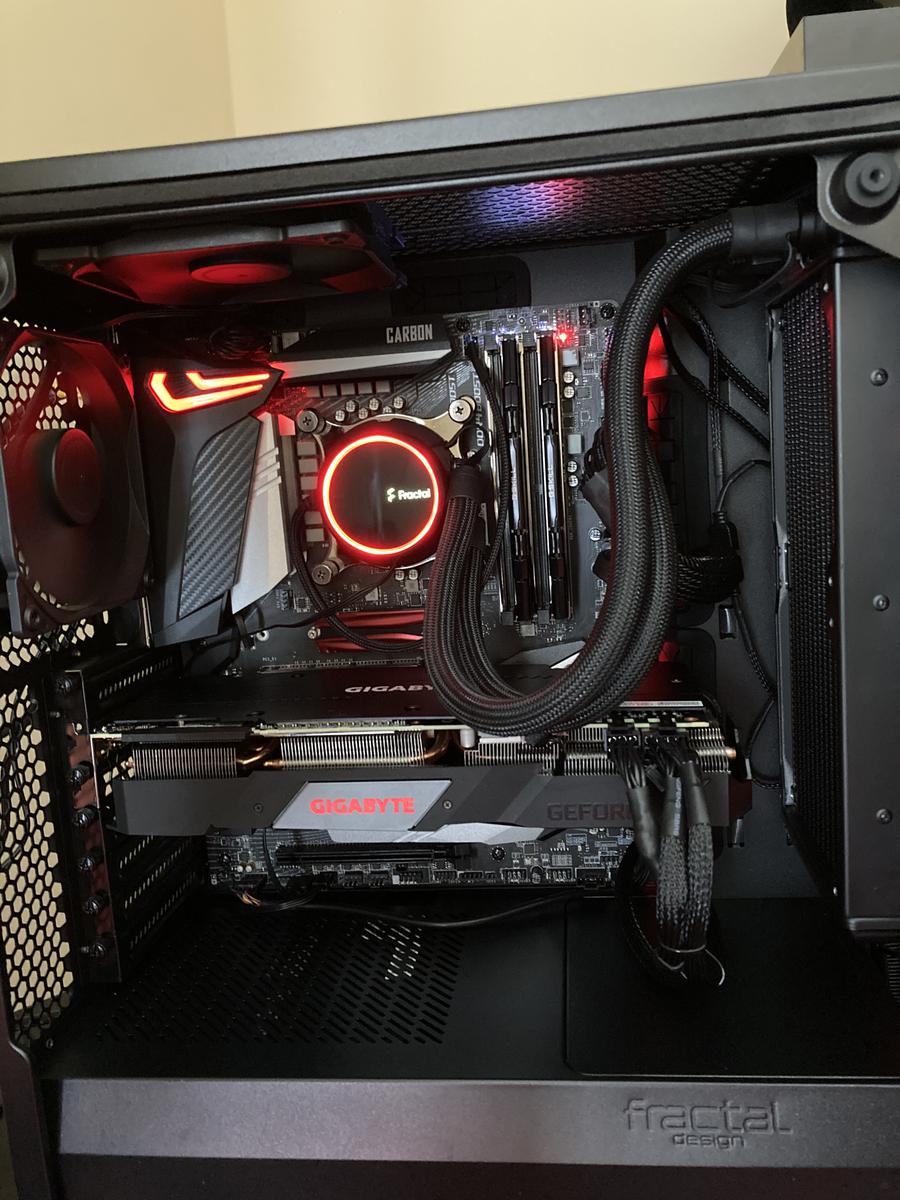
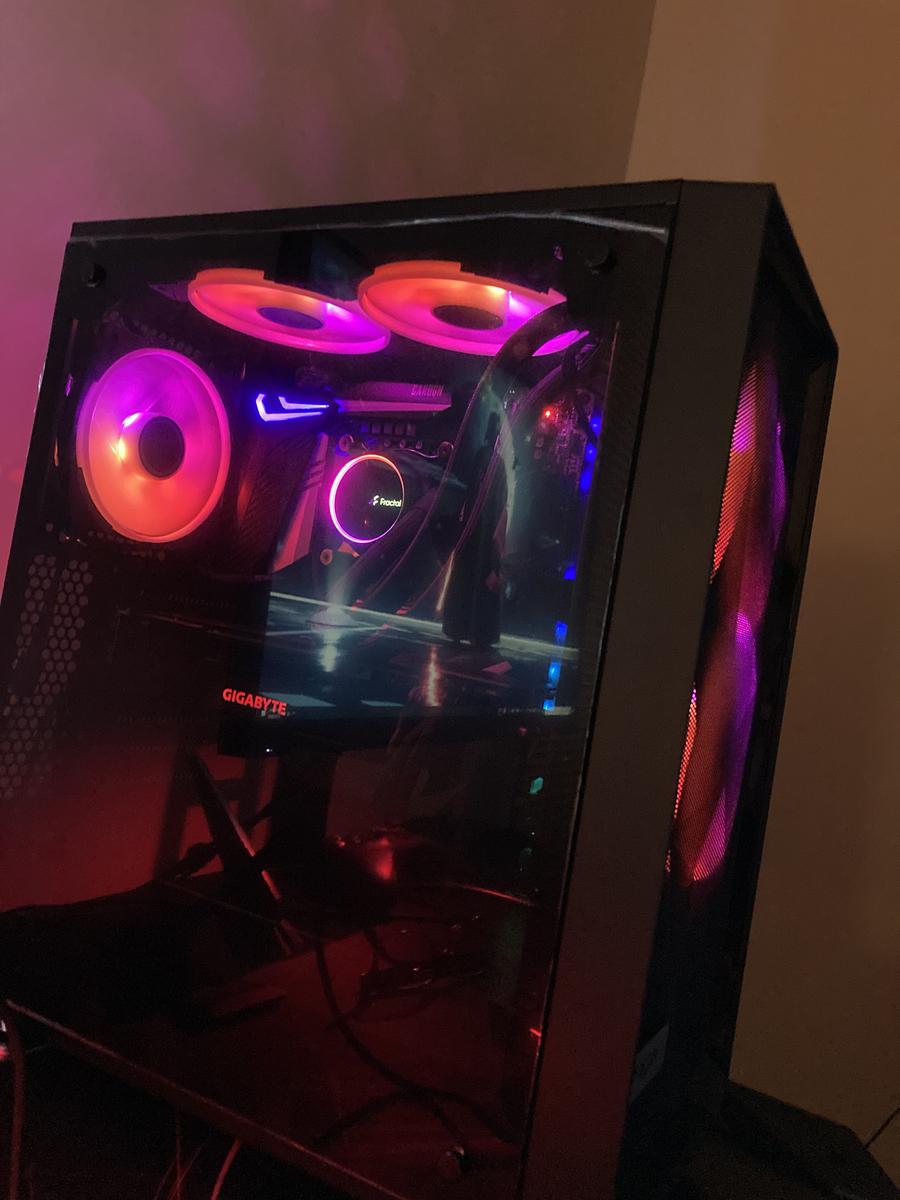
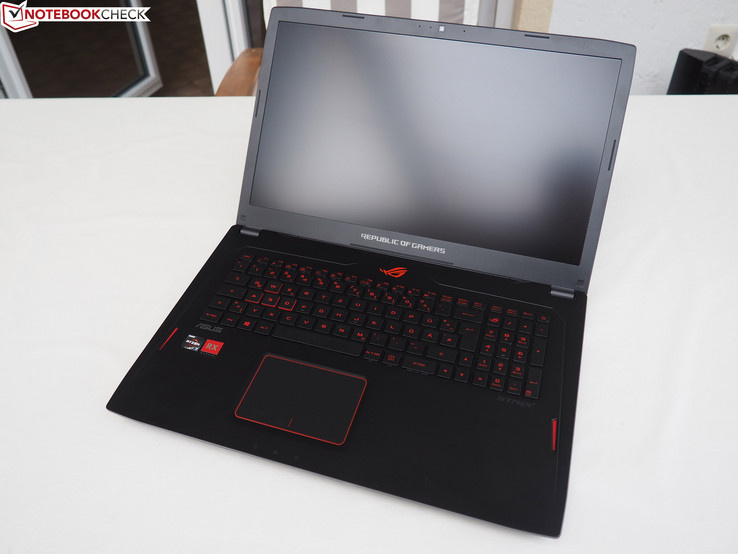

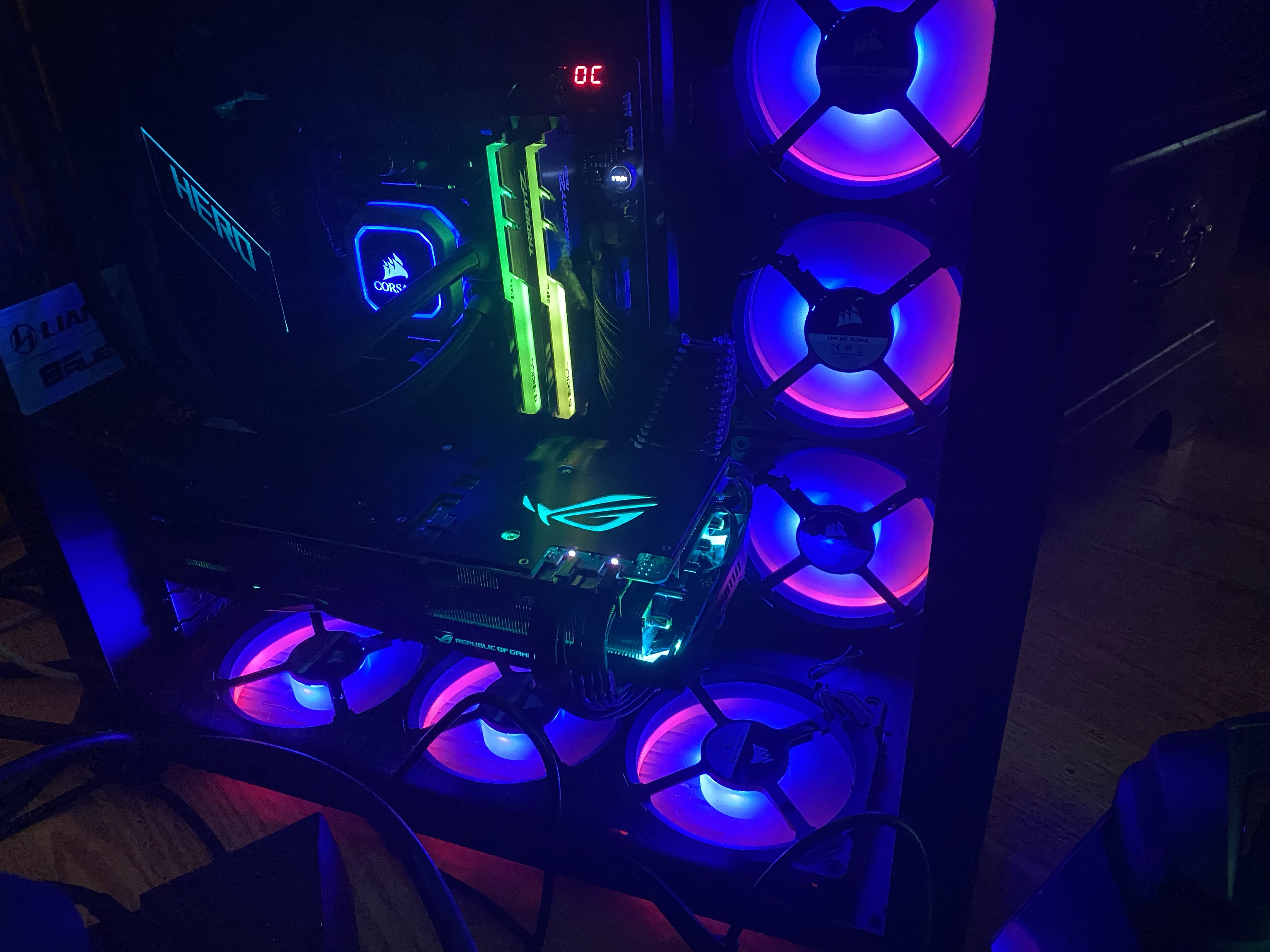
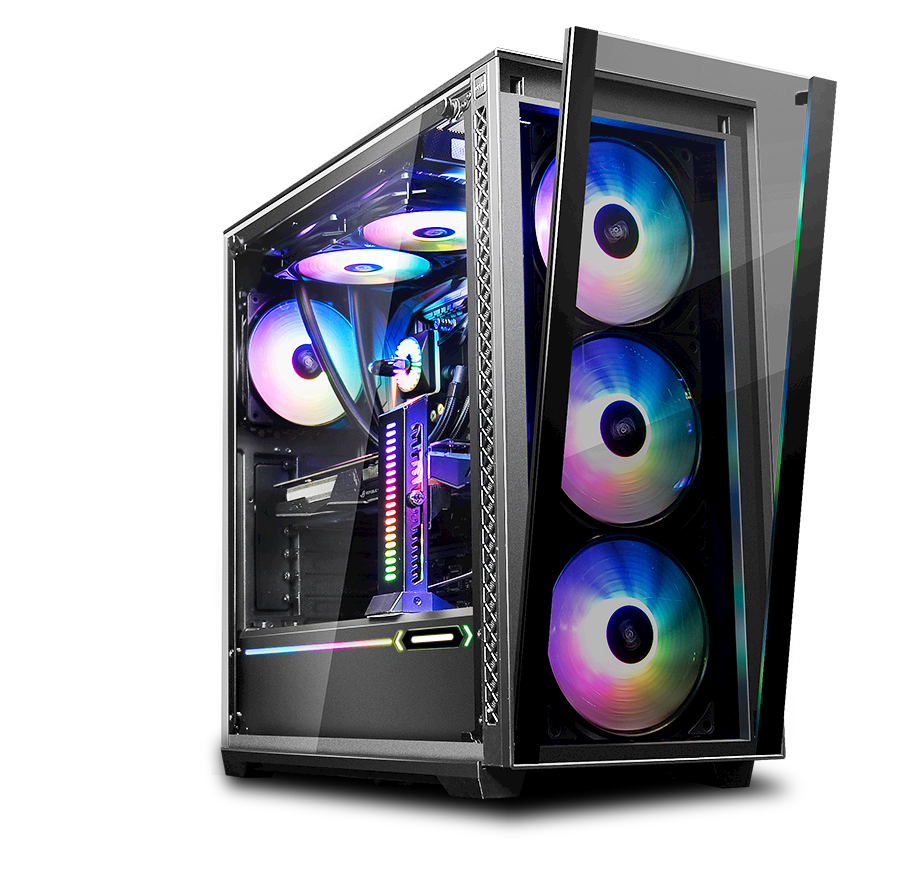
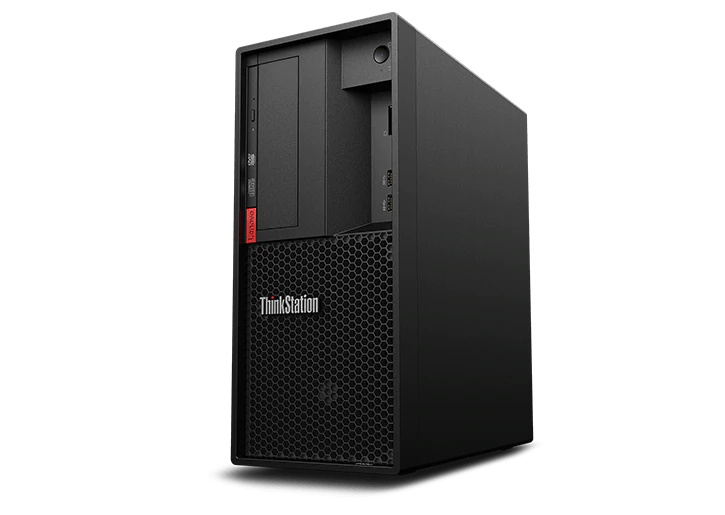
 More as a matter of usage for previous archival access - although the archives don’t last as long as was originally expected! It wasn’t an expensive option - and it is getting harder to find a case that will even allow it to be installed - so a relatively modern (read: long remaining life expectancy) build with the capability is no bad thing…
More as a matter of usage for previous archival access - although the archives don’t last as long as was originally expected! It wasn’t an expensive option - and it is getting harder to find a case that will even allow it to be installed - so a relatively modern (read: long remaining life expectancy) build with the capability is no bad thing…

